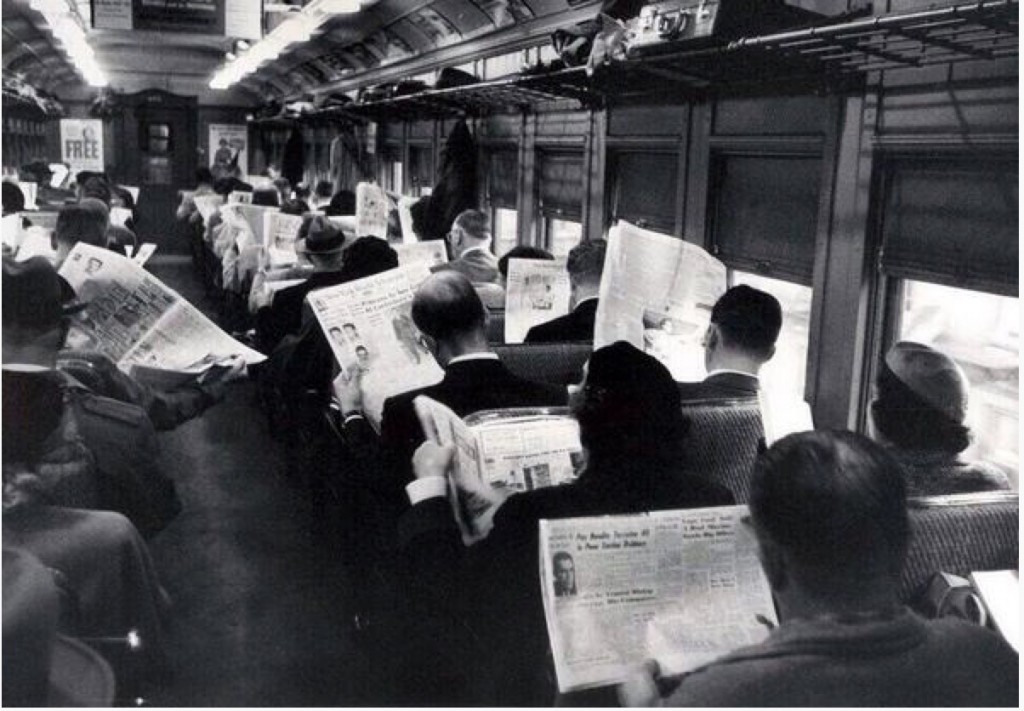Technically hegemony is “is the political, economic, or military predominance or control of one state over others” and in the world of realpolitik (e.g. Ukraine at the moment; or the cringe-making UK-US ‘special relationship’) it’s a grim reality. But it’s also a phenomenon in intellectual life, where it signifies that a particular ideology has become so pervasive and dominant that it renders alternative viewpoints/ideologies literally unthinkable. Since the 1970s, neoliberalism (aka “capitalism with the gloves off”) has increasingly acquired that hegemonic status, to the point where it now infects every aspect of public policy.
I came up against this yesterday when I had a conversation with someone who described the BBC as an “intervention in media markets”. I balked at this: the BBC, it seems to me, is a public service which existed long before there were media markets of any recognisable kind, and it was therefore not designed to be an “intervention” in anything other than the public sphere. And even now, when there are global media markets with which the BBC co-exists, it’s misleading — even for those who approve of the BBC and public service broadcasting services generally — to view it as an “intervention” to remedy market ‘failure’. The fact that the commercial media market doesn’t provide publicly-valuable services isn’t a ‘failure’ of that market. Commercial markets exist to make profits, and media markets are doing just fine at that. Any societal benefits they happen to provide — unbiased current affairs coverage, employment — are side effects of the core business.
But after the conversation I fell to brooding on the dominance of market ideology in the thinking of the policy-makers I meet — which is where the idea of hegemony came from. Since the 1970s we have all become like one-club golfers: whenever a policy issue arises we tend to think about it in terms of markets. We’ve seen that in the National Health Service in the UK; and in the 1980s and 1990s we saw it in the way the Birt regime that ran the BBC conceptualised the corporation’s alleged inefficiencies in terms of the absence of an “internal market”, which it then implemented under the banner of “Producer Choice”. (Which in turn led to celebrated absurdities, like the “£100 black tie” — of which more later.)
The truth is that markets are good at some things and hopeless at others. If you think about them in functional terms, they are self-organising systems which operate by transmitting price signals to their participants. These signals tell participants whether their strategy/tactics are working or not, and indicate the direction of change needed to rectify things. But when policy-makers reach for marketised solutions to operational or administrative malfunction in non-market institutions they have to distort the institution so that they ape market affordances. And since the only signals that markets send are prices, marketised non-market institutions have to invent pseudo-prices in order to function. Which often leads to absurd outcomes, and usually means that organisations that need to harness the synergies that come from departments working together become less than the sum of their parts, because the parts are now ‘trading’ with or against one another.
Just to take the BBC as an example. Pre-Birt, the BBC had a fabulous research library which was available — free — to every employee of the corporation. Similarly, it had a wonderful Wardrobe department, also available free to every producer. After the introduction of ‘producer choice’, these services were no longer free, so producers and researchers had to make a decision about whether the budget could afford a lot of library research, or whether to experiment with a range of costumes. As told to me by a BBC insider, the legendary £100 black tie episode arose as follows. The News and Current Affairs department used to periodically rehearse plans for covering the death of the then Queen Mother. To be realistic, these rehearsals had obviously to be unannounced in advance: staff would have to drop what they were doing and go into Queen-Mother-dead routine. This required the (all-male) News anchors to wear black ties. On one such occasion, none of them had a black tie, so a request was sent to Wardrobe. Wardrobe quoted an internal price that the producer regarded as exorbitant. So a production assistant was dispatched to M&S in a taxi in order to procure said ties. The cost, including taxi fares, came to £100 per tie.
I’ve no idea if this story is true or not. It does, however, illustrate something that I believe to be true, namely that phoney internal markets are an absurdly inefficient way of organising the feedback signals needed to make departments responsive to failure or inefficient performance. But a signalling system is essential to avoid the kind of stasis, complacency and conservatism that often characterises non-market institutions. The good news is that with computing and networking technology we now have lots of ways of signalling satisfaction/dissatisfaction — e.g. by means of online and instantaneous rating systems. They’re not magic bullets (witness the ways in which customer ratings of Uber drivers can be dysfunctional), but compared with the absurdities implicit in distorting non-market institutions to make them mimic markets, they’re likely to be much less damaging.


